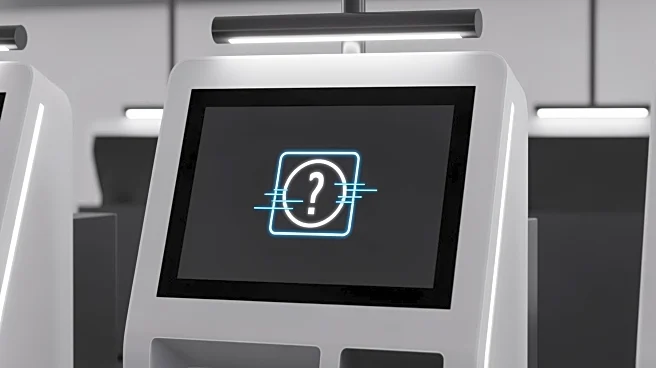What's Happening?
A retail worker observed a customer exploiting the self-checkout system by scanning only a fraction of her items before leaving the store. The incident occurred when the worker noticed the customer with a full cart at the self-checkout, but without using
any bags. Upon reviewing the transaction, it was found that the customer had scanned only five small items totaling approximately $10, while the cart contained goods worth around $60. This situation has sparked a debate about the effectiveness and security of self-checkout systems, which have become increasingly prevalent in retail environments. The worker expressed concerns about the potential for theft and the challenges in monitoring customer behavior at self-checkouts.
Why It's Important?
The incident highlights a significant issue with self-checkout systems, which are designed to offer convenience but may inadvertently facilitate theft. As retailers continue to adopt these systems to reduce labor costs and improve customer experience, the potential for exploitation poses a risk to store profitability and security. This situation underscores the need for improved monitoring and security measures to prevent loss and ensure fair transactions. Retailers may need to reconsider the balance between convenience and security, potentially investing in technology or personnel to oversee self-checkout areas more effectively. The broader implications could affect retail strategies and customer trust in self-service technologies.
What's Next?
Retailers may need to evaluate their self-checkout systems and consider implementing additional security measures, such as surveillance cameras or staff oversight, to deter theft. There could be discussions within the industry about the best practices for managing self-checkout areas and ensuring customer compliance. Retailers might also explore technological solutions, such as AI-driven monitoring systems, to enhance security without compromising customer convenience. The incident may prompt other stores to review their policies and procedures related to self-checkout to prevent similar occurrences.
Beyond the Headlines
The ethical implications of self-checkout systems raise questions about consumer behavior and the responsibility of retailers to prevent theft. As self-service technology becomes more common, there is a cultural shift towards greater autonomy in shopping experiences, which may lead to increased opportunities for dishonest behavior. This development could influence how retailers design their stores and interact with customers, potentially leading to a reevaluation of the role of human interaction in retail environments.
















